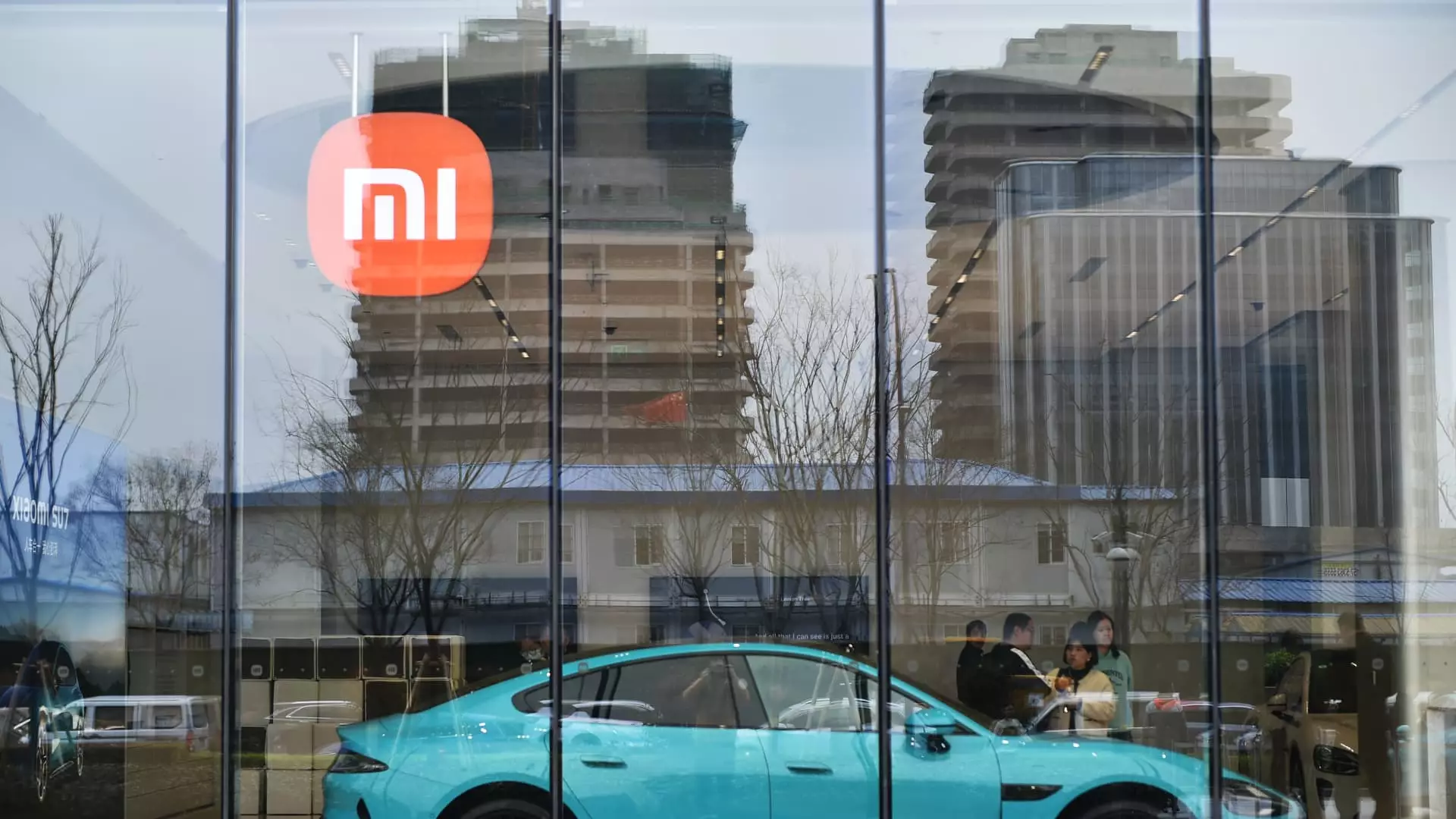Xiaomi, a Chinese smartphone maker, saw its shares skyrocket by 15% as soon as the Hong Kong market opened on Tuesday following the launch of its SU7 electric car just in time for the Easter holiday. This significant increase in share value indicates the high level of interest and excitement surrounding Xiaomi’s latest venture into the electric car market.
In a bold move, Xiaomi revealed that the SU7 would be priced around $4,000 lower than Tesla’s Model 3, showcasing the company’s competitive pricing strategy to attract customers. Additionally, Xiaomi claimed that the SU7 would offer a longer driving range, appealing to consumers looking for reliable electric vehicles with advanced capabilities.
Xiaomi’s online store reported wait times of at least 5 months for the basic version of the SU7, underscoring the strong demand for the new electric vehicle. Within just 27 minutes of the start of sales, Xiaomi received orders for over 50,000 cars, demonstrating the enthusiastic response from consumers towards the SU7.
Amidst the competitive landscape of China’s electric car market, companies like Xpeng and Nio announced purchase subsidies of 20,000 yuan and 10,000 yuan respectively to incentivize customers. With the Chinese government’s policy efforts to promote consumption through trade-ins, these incentives are aimed at driving sales for EV startups in the region.
Despite the rapid growth of new energy vehicles in China, recent data suggests a slowdown in the market. The penetration of battery and hybrid-powered passenger cars has exceeded one third of new cars sold in the country, as reported by the China Passenger Car Association. Companies like Li Auto and Nio have adjusted their delivery forecasts, indicating a cautious approach in light of the evolving market dynamics.
While some companies like Li Auto reported an increase in car deliveries in March, others such as Nio and Xpeng saw modest figures. On the other hand, Huawei’s new energy car brand Aito marked a significant milestone with a high number of car deliveries. Industry giant BYD continued to dominate the market with robust sales of both battery-powered and hybrid vehicles, showcasing consistent growth in passenger car sales.
Xiaomi’s foray into the electric car market has generated considerable excitement and investor interest, highlighting the company’s potential to become a key player in the industry. With innovative products and competitive pricing, Xiaomi is well-positioned to capitalize on the growing demand for electric vehicles in China.

